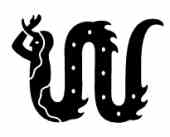
HENEVER I've been asked to define PUBLIC OPINION POLLING, I give this answer:
Public opinion polling is a highly specialized form of JOURNALISM whose entire subject matter and occupation is quantifying what the public thinks about chosen questions and issues.
Just like the main stream media, public opinion pollsters publish their "Survey Results" with clockwork regularity. They also have "advertisers, patrons and subscribers" that determine, in part, what matters are to probed for public reaction. But such commercial interests should not compromise the scientific integrity of the pollster's practices and methods. In relation to what the people are thinking, a public opinion pollster is analogous to a newspaper like the Wall Street Journal or Business Day in their relationship to the state of global and local markets and business in general.
Main stream journalism -- the newspapers, magazines, television and radio stations -- primarily produce two things, NEWS and OPINION, about the WHO, WHAT, WHEN, WHERE, WHY and HOW in society. Like a newspaper, a pollster uses "editors" and "publishers" to design the surveys and craft the questionaires used by "reporters," who conduct field surveys on "sources" that are actually randomly selected samples of the target population. Pollsters also have "deskmen" and "copyreaders" who are actually mathematical statisticians who develop the "news story" called "the Survey Results" from out of the mountain of raw data that the data collectors out in the field generate by administering surveys, typically to a random sample of 1200 registered voters for each survey. The Survey Results with all its Raw Data and Raw Questions, are like a newspaper's front page story that details how the public's opinion is divided on a given issue or subject matter. But like a newspaper, every public opinion pollster has an "editorial point of view." In the case of the SWS, each such "news story" is introduced, summarized and editorialized upon by MAHAR MANGAHAS, the chief of SWS.
The data collection procedure for a scientific public opinion survey is well-defined, and the data reduction method based on statistical and mathematical techniques is also OBJECTIVELY rigorous. There are nevertheless several gray areas of a SUBJECTIVE nature that can seriously affect the integrity or utility of a public opinion poll, even if its more technical aspects are done correctly.
(1) The expression, number, sequence and nature of the SURVEY QUESTIONS can lead to surveys that present puzzling problems of interpretation, especially when comparing two very similar looking but different sets of survey questions, such as we recently did with apparently divergent polling results on abortion in America (Ponnuru's Polling Puzzle) or when the questions are ill-posed and subtly biased to elicit a desired statistical response, such as in Masters of the Big Lie Technique.
(2) The pollsters themselves often go far beyond a dispassionate enumeration of their numerical "Survey Results" and participate in the reporting and interpretation of their own data. Thus, I regard the posts of Mahar Mangahas introducing new SWS Survey Results like Editorials in the big newspapers discussing and editiorializing upon their headline stories.
(3) Real trouble arises when conventional reporters and commentators then report on and interpret the public opinion polls, often with no idea whatsoever about what they are dealing with. All kinds of funny pseudoscientific headlines, lead articles and "analyses" are published. But this genre of propaganda will have to await a future commentary for a proper treatment.
By the way SWS Fourth Quarter Survey Results are out. Here is how Mahar Mangahas described it--
Fifty-four percent of Filipinos approve, while 20% disapprove, of requiring President Gloria Macapagal-Arroyo to leave office before the end of her term in 2010, thus making former President Fidel Ramos's proposal the most popular among five component ideas for constitutional change tested in the December 2005 Social Weather Survey.The Third Quarter National Survey is also up at the SWS website,--
Anti-GMA feelings ran very high in the last few days of the recent hearings of the House Committee on Justice, with the nationwide 3rd Quarter 2005 Social Weather Survey finding 79% wanting President Gloria Macapagal-Arroyo impeached, 64% favoring her resignation, and 51% saying she should be removed by People Power if the House of Representatives would reject her impeachment.RICKY CARANDANG and PROF. CLARITA CARLOS had a discussion about these matters at noon on ANC. To answer RC's question of Carlos, which she seemed to ignore, I don't see any inconsistency in these two results, because the options presented and the questions were different. Chacha was not presented as an option in August.
No comments:
Post a Comment